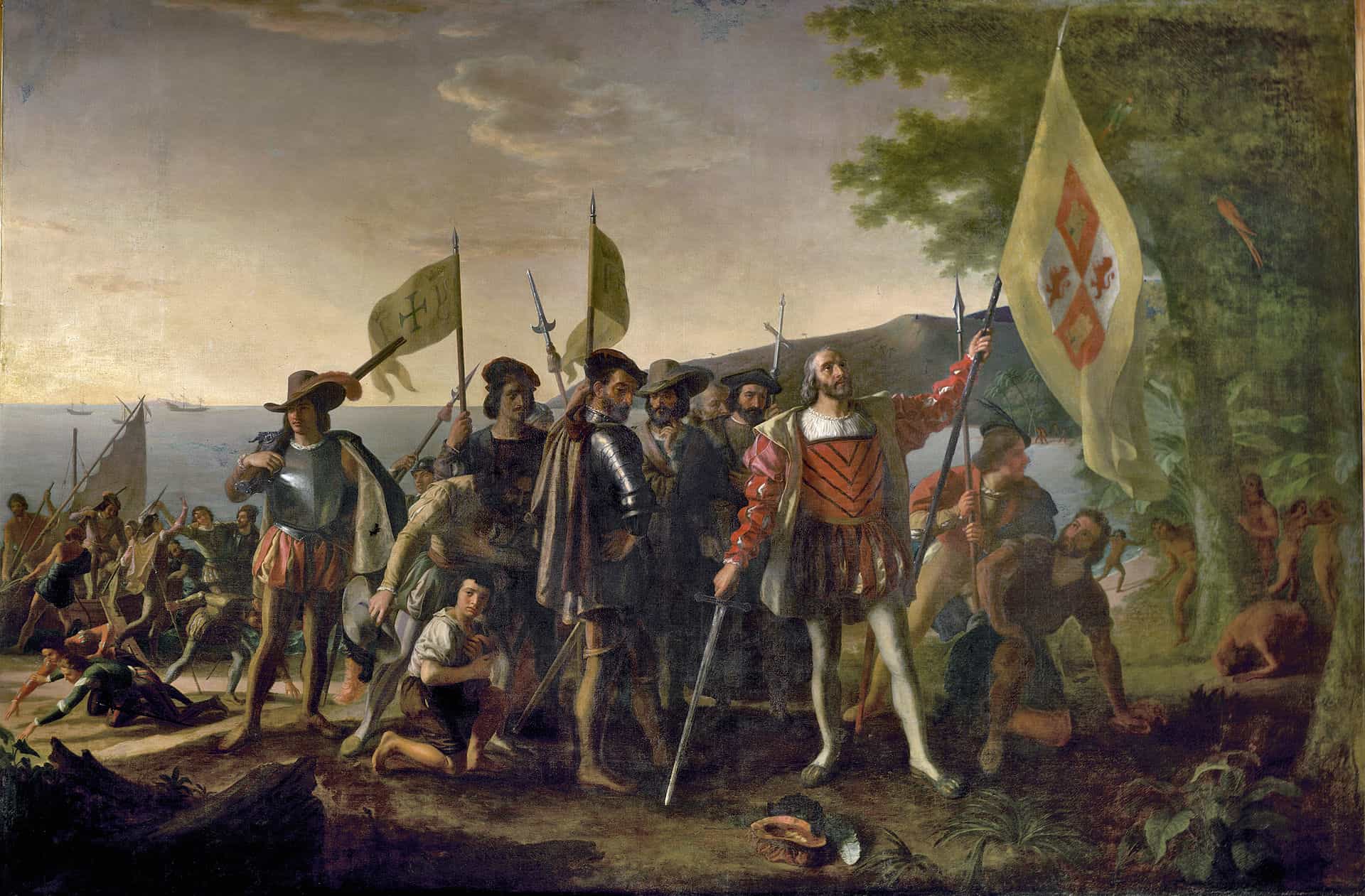In America: the Last Best Hope, Volume 1: From the Age of Discovery to a World at War, 1492-1914, William Bennett writes,

To the modern complaint that Columbus brought slavery to the New World and that the Europeans’ diseases wiped out indigenous peoples, a response is due. Slavery was a pervasive fact of life among the Europeans, but also particularly among the Arabs, the Africans, and the Indians themselves. In Asia, slavery had always existed. It seems hard to credit an attack on Columbus that singles him out for what was then a fairly universal practice. As much as we deplore slavery today, we cannot ignore the moral development of the West from our present vantage point outside the context of history. It was from the very experience of administering a far-flung empire that Spanish scholars began to elaborate universal doctrines of human rights that led, eventually, to the abolition of slavery in the West. A counter-challenge might be offered: Who, in Columbus’s time, did not practice slavery? One might conclude that far from being slavery’s worst practitioners, westerners led the world to end the practice.
 The very frightful consequences of smallpox and measles—which would continue to take their toll among Indians well into the nineteenth century—could hardly have been known by the European explorers of Columbus’s day. Very little of the germ theory of disease was then known. And when it did become known, vaccines to protect against them were the product of that European culture—that same exploring, seeking spirit of Columbus—that is now so widely attacked. Even if Europeans of Columbus’s time had had the scientific knowledge to test for diseases, the only way to have avoided infecting innocent aboriginal peoples would have been to have stayed at home in Spain.
The very frightful consequences of smallpox and measles—which would continue to take their toll among Indians well into the nineteenth century—could hardly have been known by the European explorers of Columbus’s day. Very little of the germ theory of disease was then known. And when it did become known, vaccines to protect against them were the product of that European culture—that same exploring, seeking spirit of Columbus—that is now so widely attacked. Even if Europeans of Columbus’s time had had the scientific knowledge to test for diseases, the only way to have avoided infecting innocent aboriginal peoples would have been to have stayed at home in Spain.
Critics also seem to have discounted the devastation of Europe in the previous century brought on by the Plague. Estimates are that one third of Europeans died as a result of this epidemic that scholars believe originated in the Gobi Desert in the early 1300s. The Black Death, as bubonic plague was known, had been brought to Europe from Asia. Much less fashionable than the moral indictment against Western nations for carrying disease to the New World is the counterclaim against Asia—and equally absurd.
Bennett, William J., America: The Last Best Hope Volumes I and II (p. 28-29). Thomas Nelson. Kindle Edition.
top image credit: Landing of Columbus (12 October 1492), painting by John Vanderlyn
